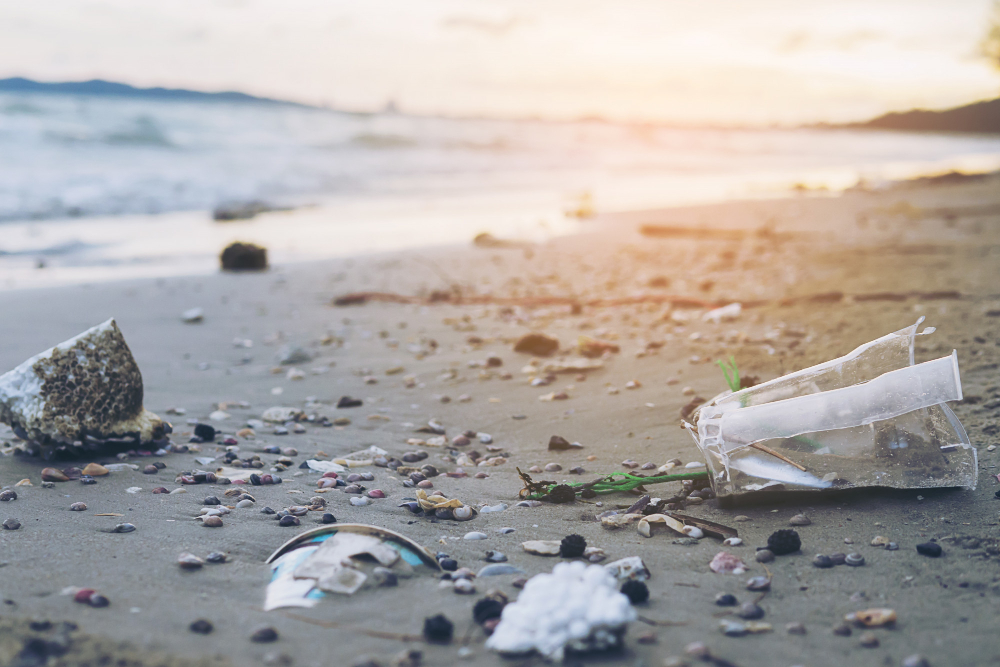
New Jersey's beautiful coastline is one of its greatest treasures, drawing millions of visitors each year to enjoy its sandy beaches and ocean views. But beneath the surface, a growing crisis threatens this natural beauty: plastic pollution. The Garden State, like many coastal regions, is on the front line of the battle against ocean waste.
Fortunately, there is a powerful tool at our disposal: plastic recycling. When we commit to effective recycling practices, we take a significant step toward protecting our marine ecosystems. This post will explore the connection between plastic recycling in New Jersey and the health of our oceans, outlining the problem and providing clear, actionable solutions for businesses and residents. Understanding how your recycling efforts contribute to a cleaner, healthier ocean is the first step toward making a real difference.
To grasp the importance of recycling, we first need to understand the size of the problem. Plastic waste is more than just an eyesore on our beaches; it's a direct threat to marine life and the local economy.
Each year, tons of plastic debris, from single-use bags and bottles to microscopic plastic fragments, find their way into New Jersey's waterways. This pollution often starts on land, carried from streets and storm drains into rivers like the Passaic and Hackensack, which then flow directly into the Atlantic Ocean. Once in the marine environment, plastic breaks down into smaller pieces known as microplastics, which are incredibly difficult to remove and are frequently ingested by marine animals.
According to a study by Clean Ocean Action, 84.7% of all items collected during their 2023 Beach Sweeps were plastic. This staggering statistic highlights just how pervasive plastic has become. These items don't just disappear; they can persist in the environment for hundreds of years, causing harm to over 800 marine species through entanglement and ingestion. The economic impact is also significant, with coastal tourism and fishing industries facing threats from polluted waters and beaches.
Plastic recycling is a critical component of the solution. By effectively recycling plastic materials, we can disrupt the cycle of waste that leads to ocean pollution. The process offers several key benefits that directly contribute to healthier waterways in New Jersey.
The most direct benefit of recycling is that it reduces the demand for virgin plastic production. Manufacturing new plastic is an energy-intensive process that relies on fossil fuels. When we recycle, we provide a stream of raw material that can be used to create new products. This circular approach conserves natural resources and lowers the overall amount of plastic being introduced into the environment. With less new plastic being produced, there's a smaller chance for it to end up as litter in our oceans.
A significant portion of ocean plastic originates on land. Improperly disposed of plastic waste can be easily blown by the wind or washed by the rain into storm drains, which often lead directly to the nearest body of water. A robust system for plastic recycling in New Jersey captures this waste before it has a chance to escape. When businesses and residents have access to convenient and reliable recycling services, they are more likely to dispose of their plastic responsibly, keeping it out of our streets and, ultimately, our oceans.
Recycling is a cornerstone of the circular economy—an economic model focused on eliminating waste and continually reusing resources. By participating in recycling programs, New Jersey businesses can support a system where plastic is not just used once and thrown away but is instead remanufactured into new, valuable products. This not only helps the environment but can also create economic opportunities in the recycling and manufacturing sectors.
Tackling ocean plastic pollution requires a collective effort. Here are practical steps that both individuals and organizations can take to improve plastic recycling in New Jersey.
The connection between our actions on land and the health of our oceans is undeniable. By making a conscious effort to improve plastic recycling in New Jersey, we can significantly reduce the amount of waste that pollutes our cherished coastline. It's a responsibility we all share, and the rewards—cleaner beaches, healthier marine life, and a more sustainable future—are well worth the effort.
For businesses looking to make a substantial impact, a professional recycling partner can simplify the process and maximize your contribution. A dedicated service ensures your plastic waste is managed responsibly and efficiently, turning your environmental goals into reality.
If you're looking for plastic recycling in New Jersey, contact All County Recycling today to schedule a free consultation. Let's work together to protect our oceans for generations to come.